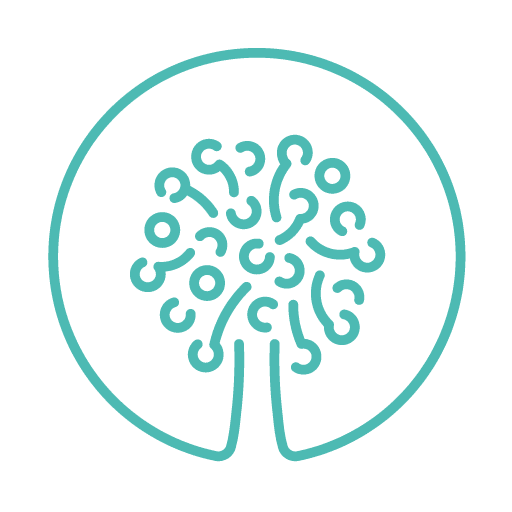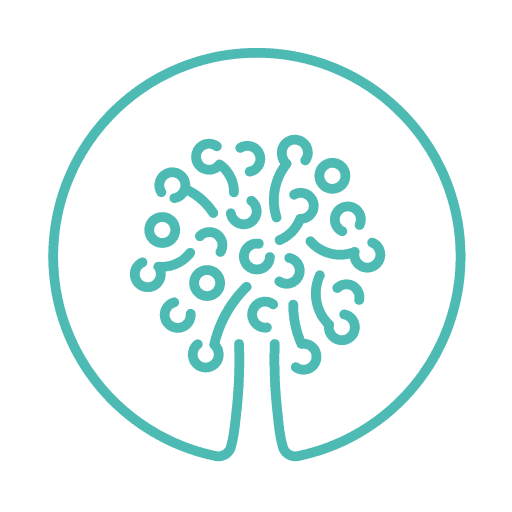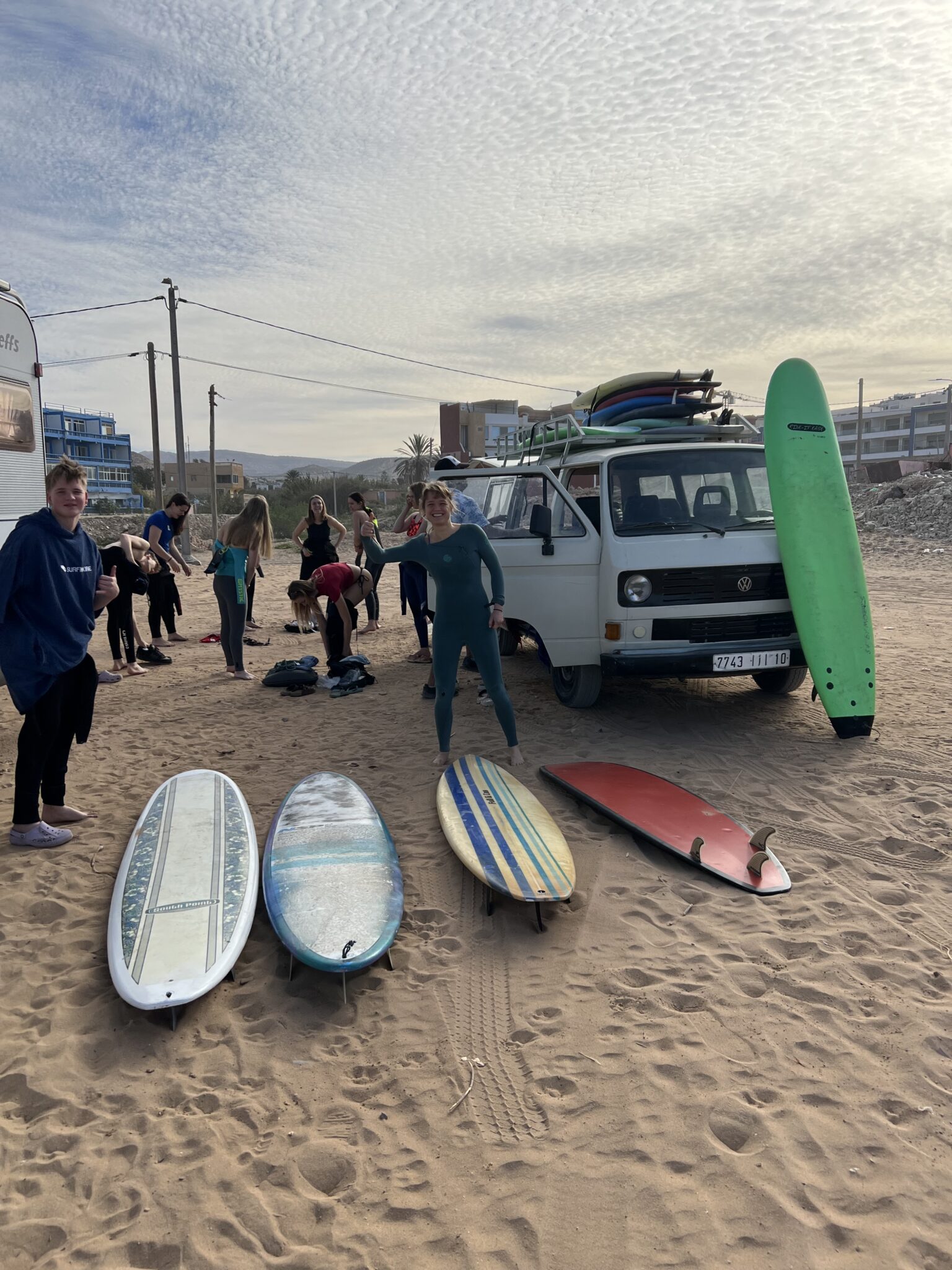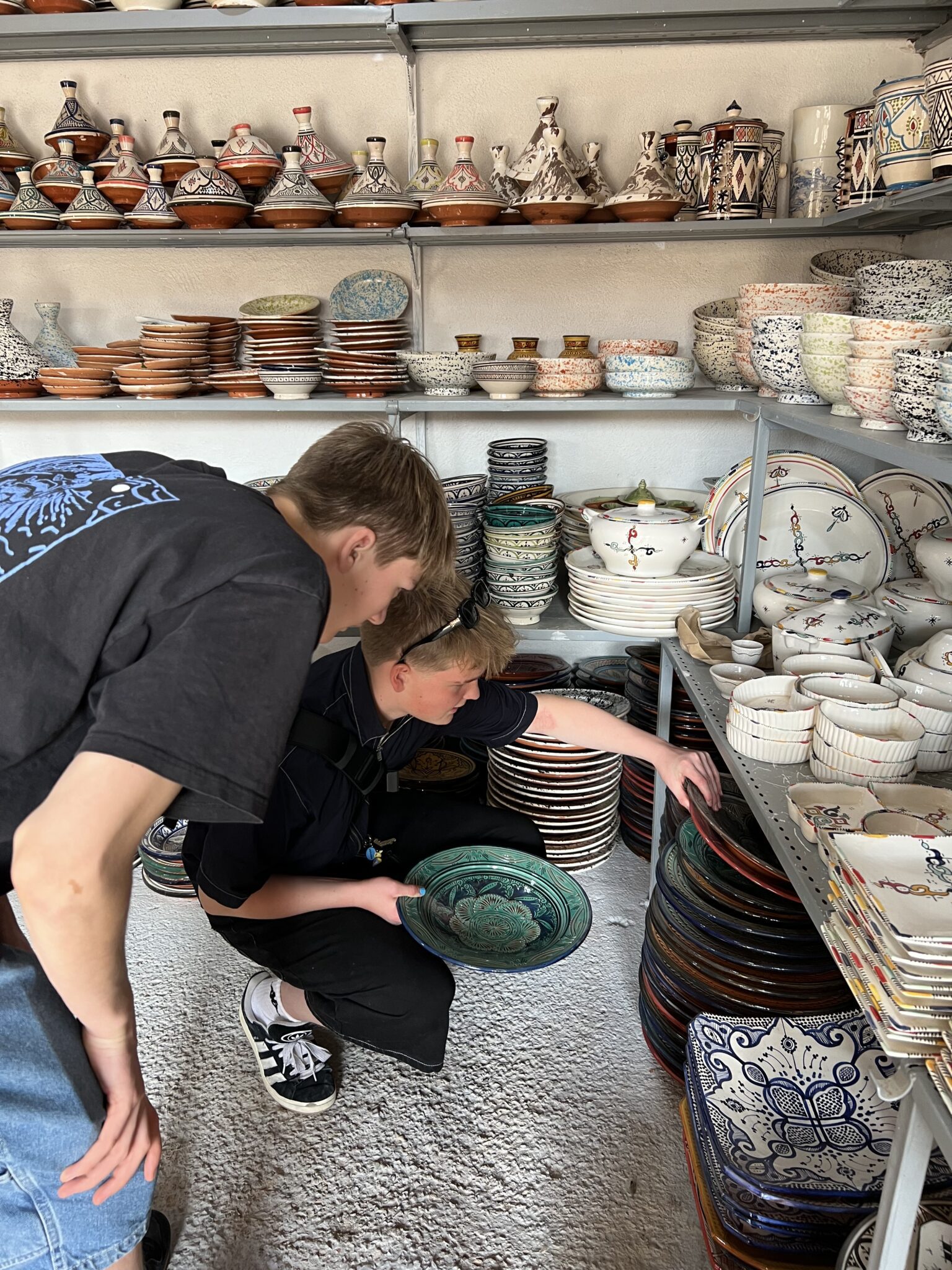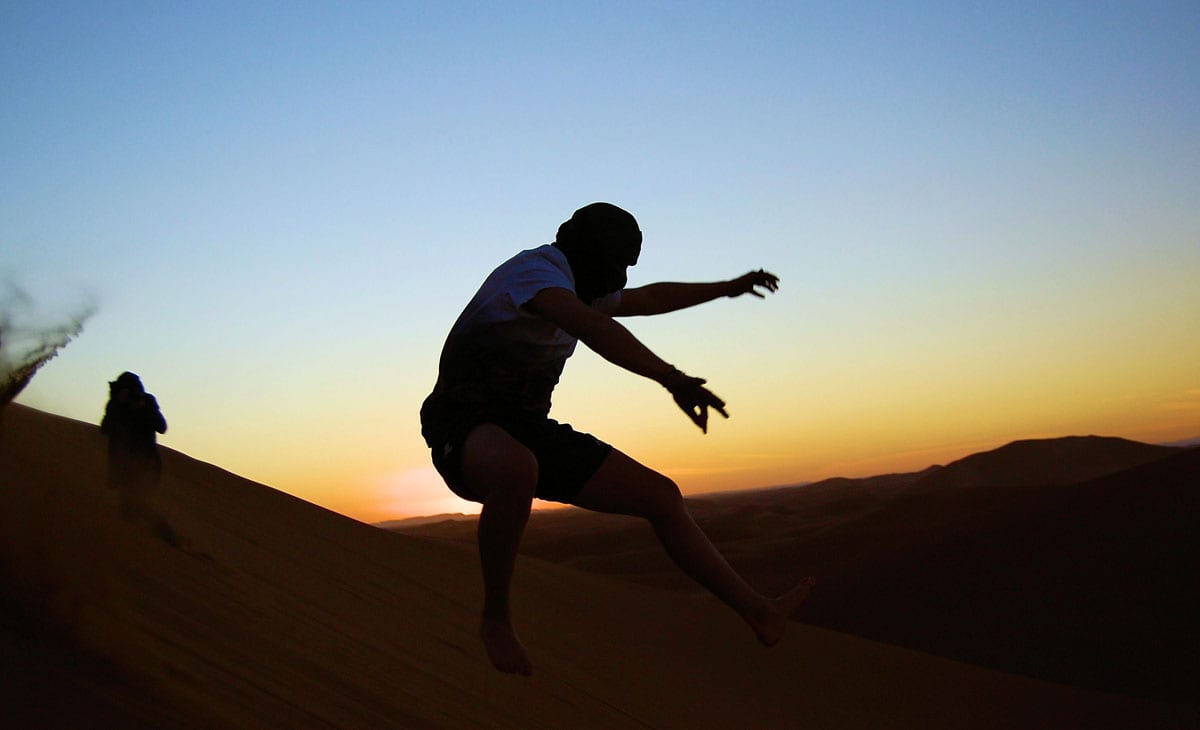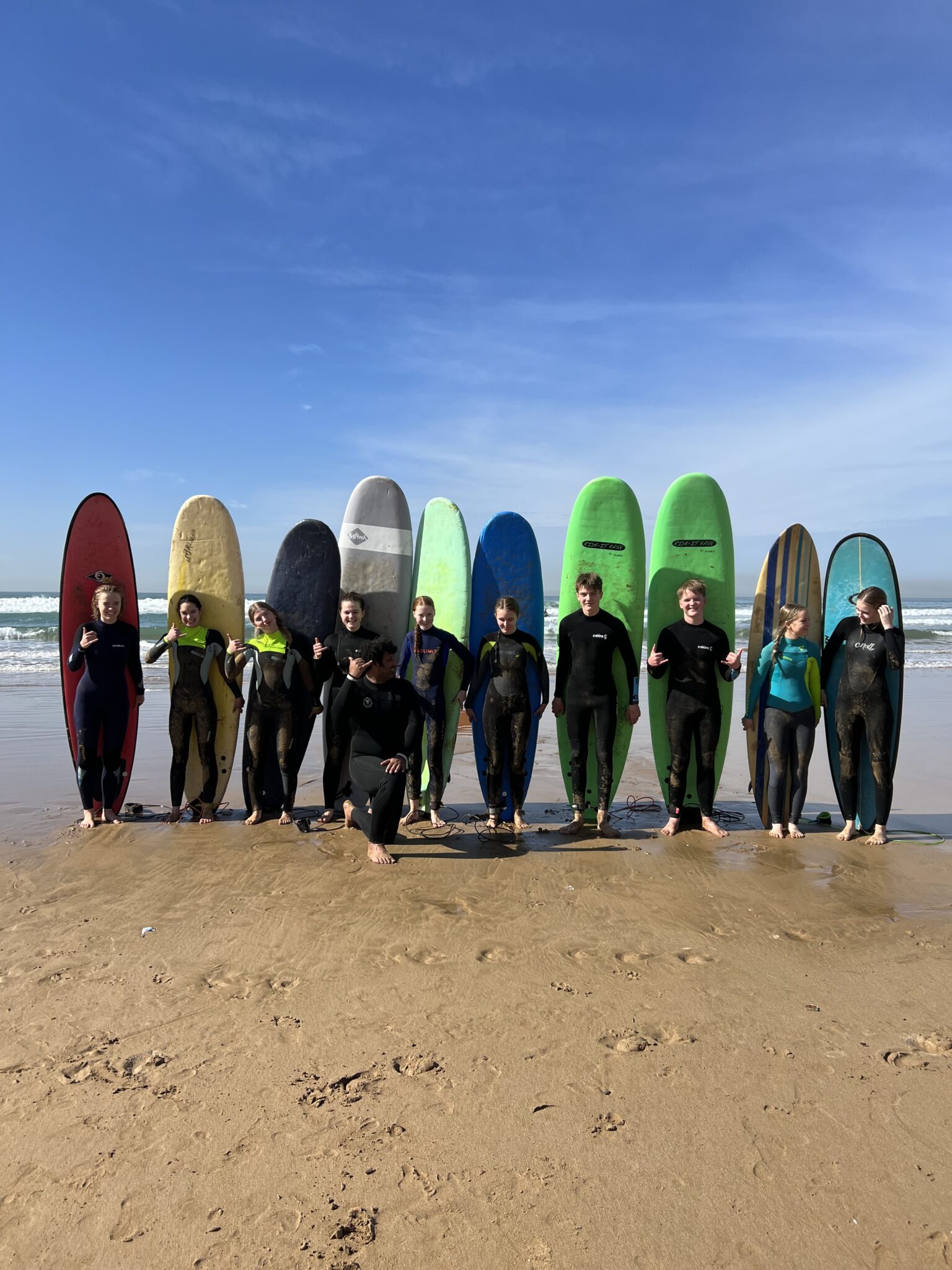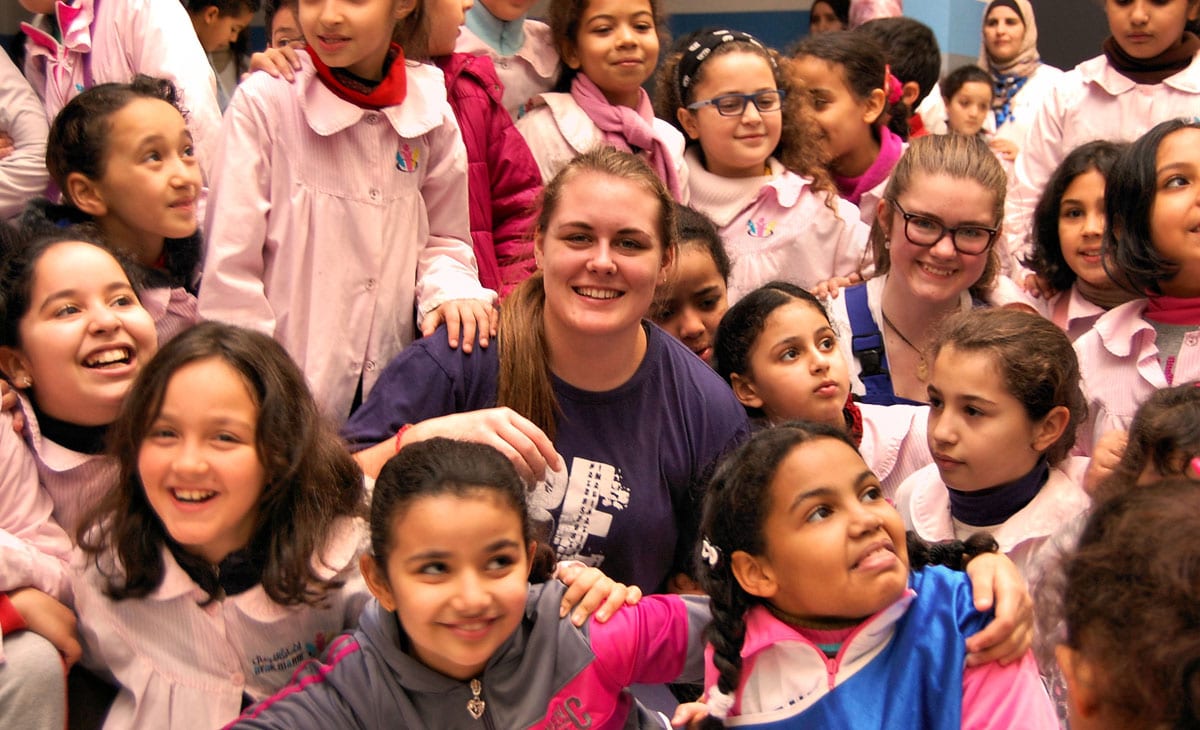
Category
Culture subjects, Former culture subjectsMorocco - Surf and culture.


Morocco is a fascinating placee North African country with a rich culture and varied nature. To the north-east lies the beautiful Atlas Mountains that stretch across the country, offering hiking trails and traditional Berber villages. To the south is the vast Sahara desert with its iconic sand dunes and dramatic landscapes. The city of Marrakesh is known for its bustling medinacolourful markets and historic palaces. Morocco's long Atlantic coastline offers popular surf destinations such as TaghaSaltthat attracts surfers from all over the world.
Academic programmes
Before we leave for Morocco, the classes at the school will give us a foundation for understanding and experiencing the country's culture and history. We will delve into both Moroccan culture and religion.
We will also focus on SDG 5: gender equality and SDG 14: marine life. Students will have the opportunity to create their own projects within these goals and explore how they can contribute to them, both at home and in Morocco.
To get closer to the arts and crafts of the country, we will work with ceramics and try our hand at creating Moroccan-inspired designs that we can compare to the beautiful pieces we will experience down there.
We'll also practice cooking classic Moroccan dishes and, of course, go surfing in the cold Danish North Sea to get ready for the waves on the Moroccan coast.
TRAVEL
Marrakesh
We start our journey in the ancient royal city of Marrakesh. Marrakesh is the epitome of the Arabian Nights. The medina is the old city centre and has more than 1000 years of history behind it. It is surrounded by a 17 km long reddish clay-coloured city wall - hence the name "The Red City", and around it is the newer part built by the French during colonial times, with the familiar French wide boulevards and green parks.
Here we will stay two nights at a riad located inside the medina, which is the old city centre.
In Marrakesh, we will go on a historical sightseeing tour including the famous Majorelle Garden, located in the New Town, we will visit the Koutoubia Mosque, recognised as one of the most beautiful in the world.
We then head to the Jewish quarter of the medina - Mellah, where we will also visit the Bahia Palace
We end our tour at the Djeema El Fna Square, a UNESCO World Heritage Site. The name of the square means "square of the dead", as until about 100 years ago it was a public place of execution. Today, the square is a showcase for centuries of local customs. Snake charmers, fortune tellers, belly dancers, jugglers, musicians, tooth extractors, medicine men are among some of the things you can experience here alongside all the food stalls.
Here you'll also find the souk, which with over 4000 shops is the largest in North Africa.
Berber villages in the Atlas Mountains
After breakfast at our riad in Marrakesh, we'll be picked up by our coach and begin the beautiful drive across the Atlas Mountains. The walk takes about 1 hour until we reach the bottom of the Atlas Mountains. From here we will hike about 10 kilometres up to the village where we will stay in some dormitories in the families' homes. Here we will eat, sleep and live like and with the Berbers.
We'll also take beautiful walks between small Berber villages in the Atlas Mountains, where we can get close to local life and daily life.
From here we move on to KASBAH AIT BENHADDOU, which is on UNESCO's World Heritage List, and has undergone many restorations, partly because it has often been used as a backdrop in various films, but also for its historical value. Today, around 100 people live in the kasbah, divided into 10 families, and many are very open about their lives and you can get very close. It's not unusual to be invited inside. We're staying right near Ait Benhaddou.
Sahara
After breakfast, we drive down to M'Hamid, where paved roads end. Here we switch to jeeps and drive further into the desert.
We pass oases where birds, dromedaries, desert foxes and gazelles come to drink water. You might see a mirage, which is not uncommon in these parts.
In the late afternoon, we arrive at our Bedouin camp where we will spend the night.
Here is the opportunity for a trip on dromedary back. We enjoy dinner under the huge starry sky and the fire crackling in the otherwise noisy silence.
After breakfast, it's on to the Atlantic Ocean. Here we'll spend the last 5 days surfing and experiencing coastal city life. We'll also visit an Argan oil farm and get to crack the nuts ourselves. We'll get some history and a guided tour. It is one of only two places in the world that works with argan.
In Tamraght, we'll also visit the small pottery market where a potter will show us some of his techniques and we can try out on the street what we've been working on at home.
VACCINES
Hepatitis A and tetanus
SAFETY
You will all be given a sticker with emergency numbers in the country, the school number and the numbers of the teachers involved. It is also a rule that you only move around in larger groups while travelling, which also applies to homestayswhere you will all live within walking distance of the teachers. For more information on safety, see the safety documentsinstruct for the journey Marokko
ECONOMY
Self-payment for the journey 9000 DKK
TEACHERS
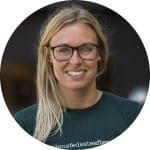 |
|
| Anja Lykke Fast aln@ranumefterskole.dk |


